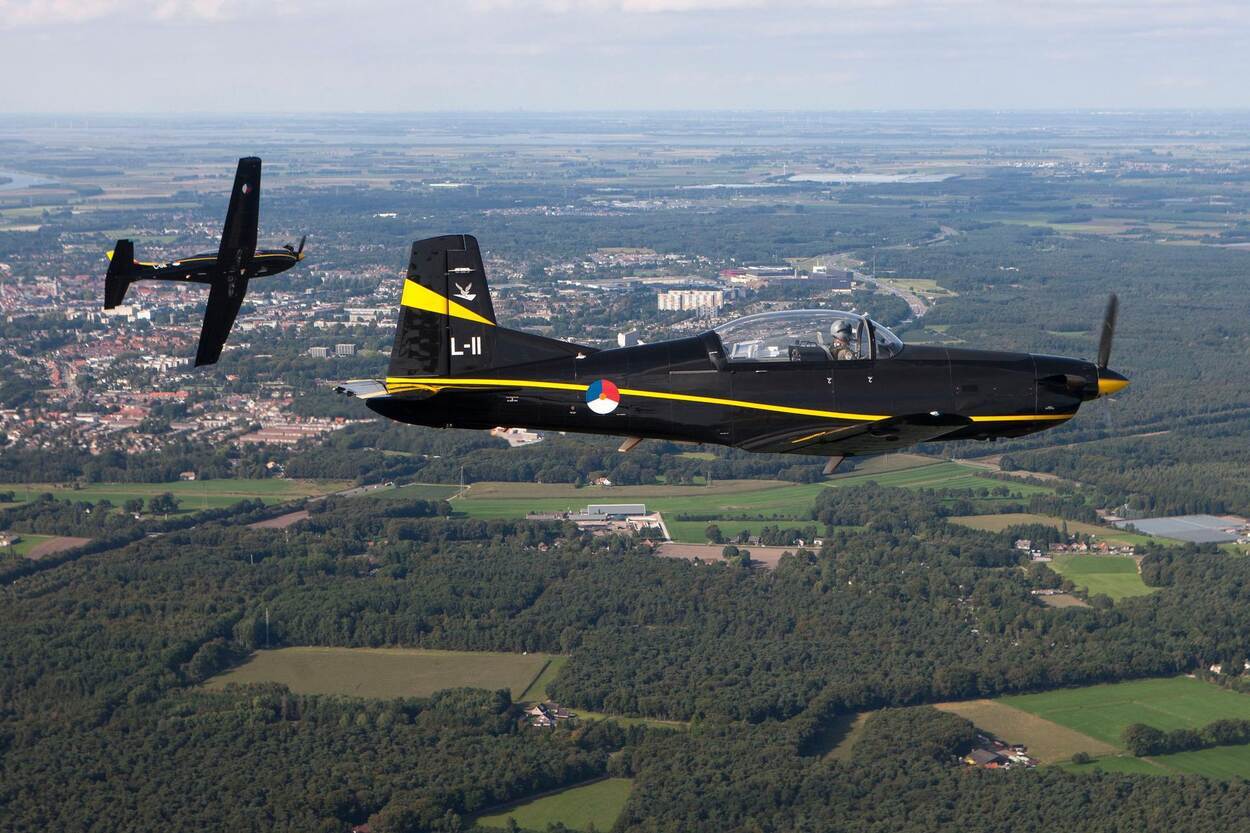The Dutch Ministry of Defence has taken a significant step to modernize its training fleet by selecting Pilatus for its new training aircraft. The ministry plans to acquire eight Pilatus PC-7 MKX aircraft along with two flight simulators and associated teaching aids. This decision follows the end of the technical lifespan of the existing fleet of 13 Pilatus PC-7 training aircraft, which have been in service since 1988 as part of the Elementary Military Pilot Training (EMVO) program. State Secretary Gijs Tuinman announced this update to the House of Representatives. The EMVO program is critical in shaping the skills of future military pilots at Woensdrecht Air Base. Through this training, student pilots learn to handle emergency situations, execute complex maneuvers, and prepare for advanced training to fly aircraft such as the F-35 fighter jet, transport aircraft, and various helicopter models. The training aircraft must meet strict criteria for control and safety, enabling instructors and students to operate effectively even in demanding conditions.
The Pilatus PC-7 MKX stood out in the selection process, meeting the Dutch Ministry of Defence’s requirements for a reliable and capable training aircraft. The PC-7 MKX is an upgraded variant of the PC-7 Mk.II, featuring modernized avionics, advanced cockpit displays, and enhanced integration with the Ground Based Training System (GBTS). The GBTS includes cutting-edge computer and simulator technology, along with tools like Virtual Reality (VR) and Mixed Reality (MR), which provide an immersive training experience for pilots. The PC-7 MKX offers a blend of ease of operation and predictable handling, making it an ideal choice for training scenarios. These aircraft are well-suited for a range of basic training functions, including aerobatics, instrument flying, tactical maneuvers, and night operations. The Swiss manufacturer Pilatus, known for the quality and reliability of its training aircraft, was provisionally awarded the contract. However, the final agreement is contingent on the outcome of a legal challenge from a competing bidder. A ruling in favor of the Ministry of Defence is required before the contract can be finalized.
The existing fleet of 13 first-generation PC-7s has served the Royal Netherlands Air Force (RNLAF) for decades, providing foundational training for numerous pilots. The PC-7 Turbo Trainer, with its low-wing tandem-seat design, has been a staple in military aviation training across more than twenty air forces worldwide. Since its introduction in the 1970s, the PC-7 has clocked over one million flight hours, proving its durability and adaptability. While the PC-7 has primarily been used for training, some operators have armed their aircraft for combat missions, which has led to controversies regarding export agreements. The introduction of the PC-7 MKX will mark a new era for the Dutch military pilot training program, offering advanced capabilities and ensuring that the next generation of pilots is ready for the challenges of modern aviation. As the RNLAF prepares to transition to the new fleet, this investment underscores the Dutch Ministry of Defence’s commitment to maintaining high standards in training and operational readiness.













